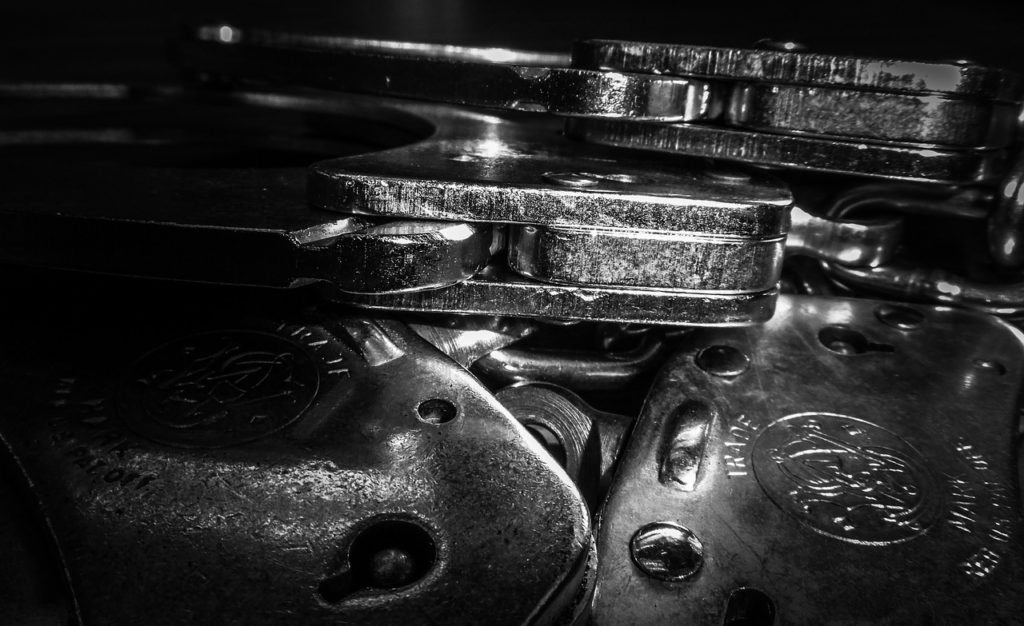A call from a self-proclaimed bail recovery agent raises red flags for a Virginia bail bondsman.
Every industry draws a few scammers—unscrupulous people who know just enough about the mechanics of the system to run a con. The bail bonding and fugitive recovery professions are no exception.
I recently had yet another call from someone posing as a legitimate bail enforcement agent. In the five years I’ve been a bail bondsman, this is the second time someone tried this scam on me. Here’s how the con works: When someone I’ve bonded out skips court, I often publish a WANTED blog post with their picture and other pertinent information. That’s when the phony bounty hunters call me promising to deliver the fugitive, with one caveat: They want their money up front.
The conversation went like this:
“Hi, I’m Johnson’s Bail Bonds in where-ever. I understand you’re looking for a fugitive by the name of who-ever. I can deliver him to you,” the male voice said. (Note: Both times they claimed to be “Johnson’s Bail Bonds,” but I couldn’t find that company in the location they were referring to. That is why I believe this was a scam.)
“Great”, I began. “She’s in NCIC and fully extraditable, so if you can locate her, call the police. Let me know which jail she’s being taken to. I’ll pay you as soon as I know she’s incarcerated.”
“I’m tired of getting scammed. I need the money up front,” was his reply.
“Not going to happen,” I shot back. “We’re wasting each other’s time. I can give you my DCJS number if you like.”
The person rejected it, and that was essentially the end of the conversation. However, about fifteen minutes later, I decided to follow up to verify that this was a con.
His story changed.
“Hi,” I began. “I spoke with you a bit ago about the fugitive, and I decided I’ll play ball with you if I can verify your information. You’re Johnson Bail Bonds, right?”
“No. We’re court officers,” he replied.
“Court officers? What does that mean?”
“It means we’re officers of the court. We work for the courts.”
“OK, fine,” I said “Then give me your license number and who you’re licensed with.”
“Oh, we don’t have one. We’re officers of the court.”
“Do you have a company name? Give me your tax ID.”
“We don’t have one. We’re officers of the court.”
“Are you federal or state?” I asked.
“We’re federal,” he answered.
“OK, well thanks,” I said, concluding our conversation.
Either this was a pitifully transparent scam, or I had just spoken with the black ops of fugitive recovery.
More likely, these guys are simply bottom feeders, grifters who want to squeeze a little money out of bail bondsmen, but without actually doing any bail enforcement work. Of course, I can’t be 100% certain that they weren’t planning to do the job; but demanding payment in advance set off major alarms for me.
If this is a common scam, it can’t be a very successful one. I can imagine few bail bondsmen falling for it. As for me, I would never pay anyone—be they a professional or an informant—a recovery fee prior to the fugitive being apprehended.
I’ve dealt with enough good, honest fugitive recovery professionals to know that an up-front payment is not standard procedure.
Here’s how it usually works: Last year, as an example, I had a fugitive skip to North Carolina. I believed I had a current North Carolina address for him. After establishing he was listed on NCIC and extraditable, I called a BEA in that locality. We discussed the details, exchanged company information and IDs, and agreed on the terms. I then sent the required information: recognizance, bail piece, pictures, and details of the subject.
The BEA went to the location to find the subject present and promptly apprehended him. A couple hours later, he was booked in and verified. I then made the payment to the BEA.
In other instances when the fugitive was turned over directly to me, the BEA was paid at the point of the exchange. The agents I’ve dealt with have always behaved as professionals and deserve to be treated as such.
These dodo-bird conmen are no match for the real professionals. Any crooks who try to pull this scam are not only the bottom feeders of fugitive recovery, but they’re also most likely the worst-paid scammers ever.
Life just can’t be easy for some people.
About the Author:
Dan Barto is a licensed bail bondsman and owner of Aarrow Bail Bonds in Richmond, Virginia. To learn more about his business, or to read his ruminations on criminal justice, see his site, “The Bondsman.”


